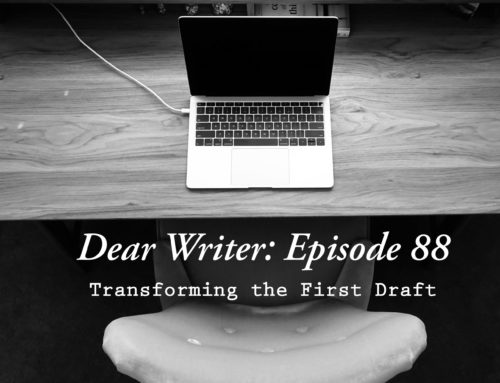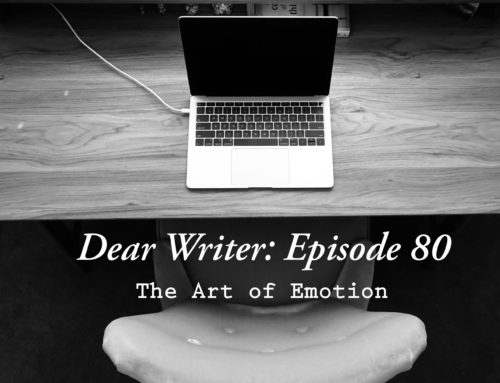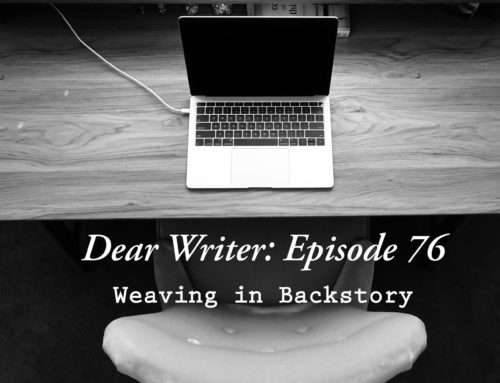Culturing Creativity – The Writing Mindset
On this culturing creativity episode, we talked all about developing a healthy writing mindset. We explored what a ‘writing mindset’ is, why it’s so important for your writing, and how to work out an approach to writing that is suited to your individual circumstances.

Episode Summary:
Main Discussion: The Right Frame of Mind
“Twenty years from now you will be more disappointed by the things that you didn’t do than by the ones you did do. So, sail away from the safe harbour. Explore, dream, discover.” – Mark Twain. What is a writing mindset?
Sarah: Our favourite dictionary, Merriam-Webster, describes ‘mindset’ as a mental attitude or inclination, or a fixed state of mind. Basically, this boils down to the way you think about something. By extension, a writing mindset is the way we think about our writing. And the way we think about our writing determines our outcomes, whether they are positive or negative.
Ashley: That’s why developing your writing mindset is really important. Some examples of potentially negative writing mindsets include, believing you can only write in the evenings or you think you can only write in one specific genre. So, a writing mindset is about developing ways of thinking that are constructive to our productivity.
Why do you need a writing mindset/Why is mindset important for writers?
Sarah: Like the definition of a writing mindset, the reasons why a healthy writing mindset is important are very broad. One, it’s important for productivity. If you don’t believe in your writing then it’s hard to create good work, or create anything at all. Two, it’s needed for marketability—you need to be proud of your work and believe that it’s worth something to be able to market effectively. And three, on a bit of a different but related path, I also think that having a healthy mindset around receiving funds for your work is also really important. A lot of writers feel they don’t deserve to be renumerated for what they achieve, but if someone is enjoying your work, you’ve done your job as a writer and you deserve to be paid for it. A negative mindset around money can also affect your mindset around writing itself—if you’re playing martyr and declining adequate pay for what you do, it can foster feelings of resentment which may show up in your writing.
Ashley: Writing mindset is important because it determines how productive you are as a writer. I think writing mindsets help develop good routines that can help guard against the dreaded writer’s block. I also think it makes writing a much more enjoyable experience. Negative writing mindsets can really limit what you end up achieving which in turn can bring about those feelings of self-doubt and procrastination.
What is our writing mindset?
Sarah: I view my writing as both a form of art and a product. When it’s in the development stages, it’s art. I get to tinker with it, experiment and learn. I have fun with it and that’s when I’m more in a creative discovery kind of mindset. But even in this mindset, I maintain the ultimate understanding that I am creating a product—not a ‘baby’ as some writers are fond of calling their work. My books are not babies, they are created to connect with others and to provide entertainment. I heard someone once refer to their books as being more like employees. You have to invest a certain amount of time, energy and resources into them. But at a certain point, they should be paying their way and become an asset to your business. I much prefer this analogy.
Ashley: I know what I want to try and achieve with a writing mindset, though it remains to be seen how effective I am at maintaining it. I try and view writing as my future career. So everything I put into it now, is kind of like my training and preparation for future me. It means that I try and find time to work on writing whenever I can, and it also means that I’m aware that I am still ‘training’. This mindset is generally good so far, but it still falls short on occasion. I guess I’m still trying to work out what is best for me.
How do you develop a writing mindset?
Sarah: I think you have to look carefully at your beliefs around writing which includes goals—what do you hope to achieve? But it’s also deeper than that, it’s about understanding what the true purpose of your writing is and creating space for that purpose to come into being. If you never want to share your writing, maybe it is like ‘your baby’. Something that’s really close and personal to you. A healthy writing mindset is one that allows you to achieve your goals, but also cushions you to setbacks and losses, because that’s going to happen at some point. Creating this ‘space’ for your healthy mindset to grow can be challenging. You have to examine which beliefs serve the goal, and which ones don’t. You have to examine why you hold these beliefs and how each one affects you. For example, beliefs you could question is your beliefs around how you value your writing, your rights to free speech, your right to earn a living off your original created works. They could include things like other people’s rights to quality entertainment for a reasonable price, trigger warnings in blurbs, and false advertising. Your thoughts around all these things could differ a lot and could be either positive or negative. But why and how you developed these beliefs in the first place is what you need to find out, so do some investigating. Once you have a really solid understanding on where you stand in relation to your writing mindset, it becomes easier to keep a healthy focus that is productive, creative and rewarding.
Ashley: I think it’s important to lay the foundation for a good writing mindset. First, determine what your writing goals are. This establishes the path you want to head on which will help you visualise what you want. Then, figure out a writing routine that works for you – make sure you make it something realistically achievable. I find having a space to write helps as well. I feel like it grounds you a bit more and helps put you into the right frame of mind.





















Leave A Comment